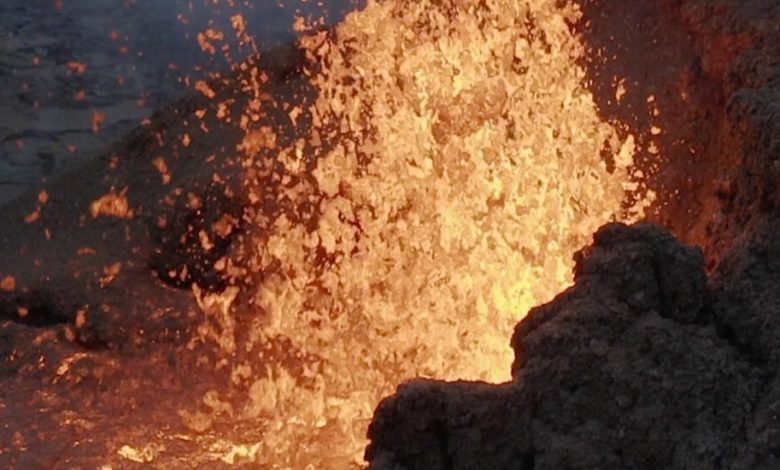A Volcano May Erupt in Iceland. Here’s What to Know for Now.

Iceland is bracing for a possible volcanic eruption.
Since late October, tens of thousands of earthquakes have been reported in the Reykjanes Peninsula, in the southwestern part of the country. At one point there were as many as 1,400 in a single 24-hour period.
On Tuesday, the Icelandic Met Office, the country’s weather service, warned that there was a “significant likelihood of a volcanic eruption in the coming days.”
The increased seismic activity and the formation of a nine-mile underground river of magma have led the authorities in recent days to declare a state of emergency and to evacuate the small fishing town of Grindavik, where more than 3,000 people live.

The entrance to Grindavik, a small fishing village in southwest Iceland.Credit…Raul Moreno/SOPA Images, via LightRocket, via Getty Images
Last week, the popular geothermal spa the Blue Lagoon temporarily closed its doors as a precaution for a possible eruption and because of the disruption caused by the many earthquakes.
When is this volcano going to erupt?
It’s hard to predict, but the authorities say it may happen in the next few days.
They said that the intensity of the seismic activity had decreased a bit, but they have continued to warn for a possible eruption. The seismic activity along the underground magma continues.
There is a long history of volcanic activity in Iceland, a country of fewer than 400,000 people and about 130 volcanoes. Most of the volcanoes are active.
The country straddles two tectonic plates, which are themselves divided by an undersea mountain chain that oozes molten hot rock, or magma. Earthquakes occur when the magma pushes through the plates.
An eruption is unlikely to disrupt air travel this time.
In 2010, when the Eyjafjallajokull volcano, one of the country’s largest, erupted, a resulting ash cloud grounded much of the air travel in Europe and disrupted aviation for days.
It’s unlikely this eruption will cause quite the same level of disruption, Iceland’s government has said.
“While the possibility of air traffic disturbance cannot be entirely ruled out, scientists consider it an unlikely scenario,” the government said on its website. “Typically, the impact of volcanic eruptions is confined to specific, localized areas.” In the past, it continued, eruptions in the same area did not affect flights to and from Iceland.
“Currently, there are no disruptions to flights to and from Iceland and international flight corridors remain open,” the government said.
Where can I find updates?
Iceland is a tourism-friendly place with a dramatic landscape and attractive airline deals to draw visitors. One website livestreams several areas of the country, especially volcanic areas. (Watch what’s going on in the Reykjanes Peninsula.)
Officials continue to monitor any activity in real time, according to the Icelandic Met Office, especially near Grindavik for any indications of sudden changes.




